第125章 VIII(2)
This is what the young men and those who worked under their guidance undertook to give us. And now such a library, such a reading-room, such an exchange, such an intellectual and social meeting place, we be hold a fact, plain before us. The medical profession of our city, and, let us add, of all those neighboring places which it can reach with its iron arms, is united as never before by the commune vinculum, the common bond of a large, enduring, ennobling, unselfish interest. It breathes a new air of awakened intelligence. It marches abreast of the other learned professions, which have long had their extensive and valuable centralized libraries; abreast of them, but not promising to be content with that position. What glorifies a town like a cathedral? What dignifies a province like a university?
What illuminates a country like its scholarship, and what is the nest that hatches scholars but a library?
The physician, some may say, is a practical man and has little use for all this book-learning. Every student has heard Sydenham's reply to Sir Richard Blackmore's question as to what books he should read, --meaning medical books. "Read Don Quixote," was his famous answer.
But Sydenham himself made medical books and may be presumed to have thought those at least worth reading. Descartes was asked where was his library, and in reply held up the dissected body of an animal.
But Descartes made books, great books, and a great many of them. A physician of common sense without erudition is better than a learned one without common sense, but the thorough master of his profession must have learning added to his natural gifts.
It is not necessary to maintain the direct practical utility of all kinds of learning. Our shelves contain many books which only a certain class of medical scholars will be likely to consult. There is a dead medical literature, and there is a live one. The dead is not all ancient, the live is not all modern. There is none, modern or ancient, which, if it has no living value for the student, will not teach him something by its autopsy. But it is with the live literature of his profession that the medical practitioner is first of all concerned.
Now there has come a great change in our time over the form in which living thought presents itself. The first printed books,--the incunabula,--were inclosed in boards of solid oak, with brazen clasps and corners; the boards by and by were replaced by pasteboard covered with calf or sheepskin; then cloth came in and took the place of leather; then the pasteboard was covered with paper instead of cloth; and at this day the quarterly, the monthly, the weekly periodical in its flimsy unsupported dress of paper, and the daily journal, naked as it came from the womb of the press, hold the larger part of the fresh reading we live upon. We must have the latest thought in its latest expression; the page must be newly turned like the morning bannock; the pamphlet must be newly opened like the ante-prandial oyster.
Thus a library, to meet the need of our time, must take, and must spread out in a convenient form, a great array of periodicals. Our active practitioners read these by preference over almost everything else. Our specialists, more particularly, depend on the month's product, on the yearly crop of new facts, new suggestions, new contrivances, as much as the farmer on the annual yield of his acres.
One of the first wants, then, of the profession is supplied by our library in its great array of periodicals from many lands, in many languages. Such a number of medical periodicals no private library would have room for, no private person would pay for, or flood his tables with if they were sent him for nothing. These, I think, with the reports of medical societies and the papers contributed to them, will form the most attractive part of our accumulated medical treasures. They will be also one of our chief expenses, for these journals must be bound in volumes and they require a great amount of shelf-room; all this, in addition to the cost of subscription for those which are not furnished us gratuitously.
It is true that the value of old scientific periodicals is, other things being equal, in the inverse ratio of their age, for the obvious reason that what is most valuable in the earlier volumes of a series is drained off into the standard works with which the intelligent practitioner is supposed to be familiar. But no extended record of facts grows too old to be useful, provided only that we have a ready and sure way of getting at the particular fact or facts we are in search of.
And this leads me to speak of what I conceive to be one of the principal tasks to be performed by the present and the coming generation of scholars, not only in the medical, but in every department of knowledge. I mean the formation of indexes, and more especially of indexes to periodical literature.